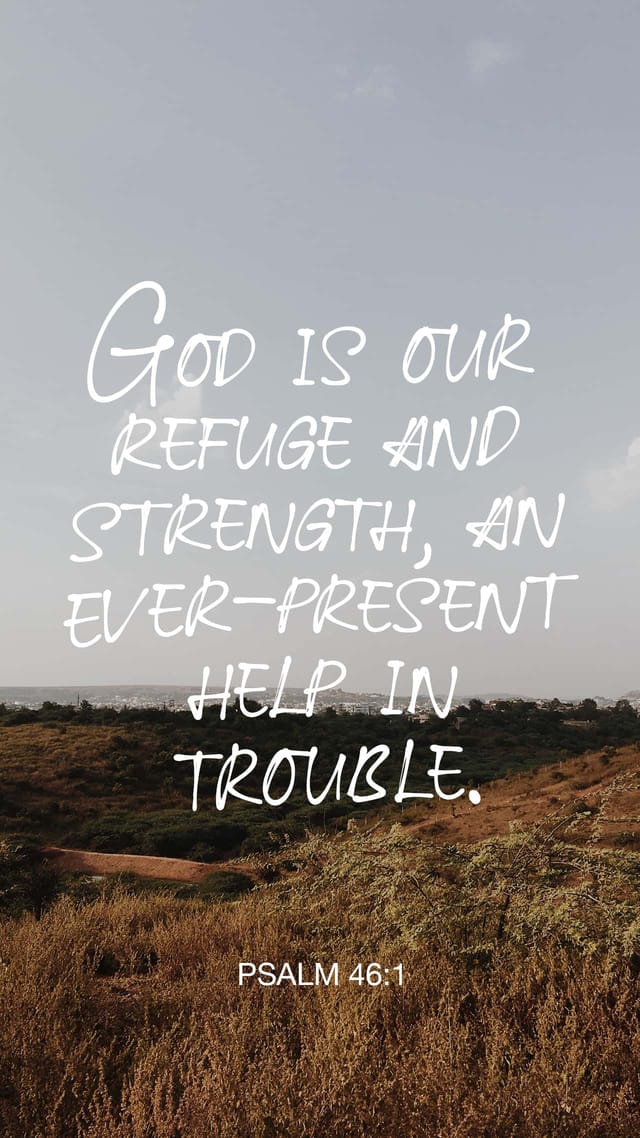always ready to help in times of trouble.
2So we will not fear when earthquakes come
and the mountains crumble into the sea.
46:1 refuge The Hebrew word used here, machseh, which refers to a place of refuge, creates an image of a stronghold or impenetrable fortress (Ps 61:3; 91:2). It emphasizes God’s protection.
strength The Hebrew word used here, oz, emphasizes God’s power to protect or save (21:1; 29:11).
a very sufficient God’s help is always accessible or available to His people.
46:2–3 The psalmist describes natural catastrophes such as earthquakes, stormy waters, and unstable mountains, which symbolized the forces of chaos in the ancient Near East (see note on 18:7–19). These verses recall God’s power over chaos as evidenced in creation (see Gen 1:2 and note). The psalmist declares that he, and those speaking the psalm with him, will not fear the forces of chaos because God is their refuge and strength (Ps 46:1).
46:4 There is a river whose streams gladden Contrasts the chaotic waters of vv. 2–3 and symbolizes God’s blessing and renewal. See Ezek 47:1–12 and note.
the holiest of the dwellings of The term mishkan, meaning “habitation” or “dwelling,” refers to the temple (see Ps 26:8 and note; and 43:3 and note).
the Most High The Hebrew name used here, elyon, emphasizes God’s supremacy as ruler and judge over the entire earth (47:2; Deut 32:8). Melchizedek first used the name (see Gen 14:18 and note).
46:5 she will not be made to totter In contrast with the mountains of Ps 46:2, the mountain of God will not be moved. It is a secure place of refuge (v. 1).
46:6 he utters his voice The voice of God is enough to turn away the threat of the raging of enemy nations that plot to overthrow His people (2:1–3; see 29:3–9 and note).
46:7 Yahweh of hosts The Hebrew title used here for God, yhwh tseva'oth, refers to Him as the commander of heavenly armies. See 24:10 and note; Isa 1:9.
46:8–9 The psalmist encourages the congregation to examine the works of Yahweh. He uses imagery of weapons—bows, spears, chariots—to show Yahweh’s power over enemy nations. By looking at Yahweh’s military power, the people can have confidence, knowing that Yahweh is their refuge (Psa 46:1).
46:9 he breaks the bow The bow (qesheth) was a symbol of strength.
46:10 Be still The term raphah means “to release” or “let go” (37:8; Job 27:6). God commands the forces of chaos (Ps 46:2–3) and the nations (v. 6) to stop their raging and recognize Him as God (2:10–12).



